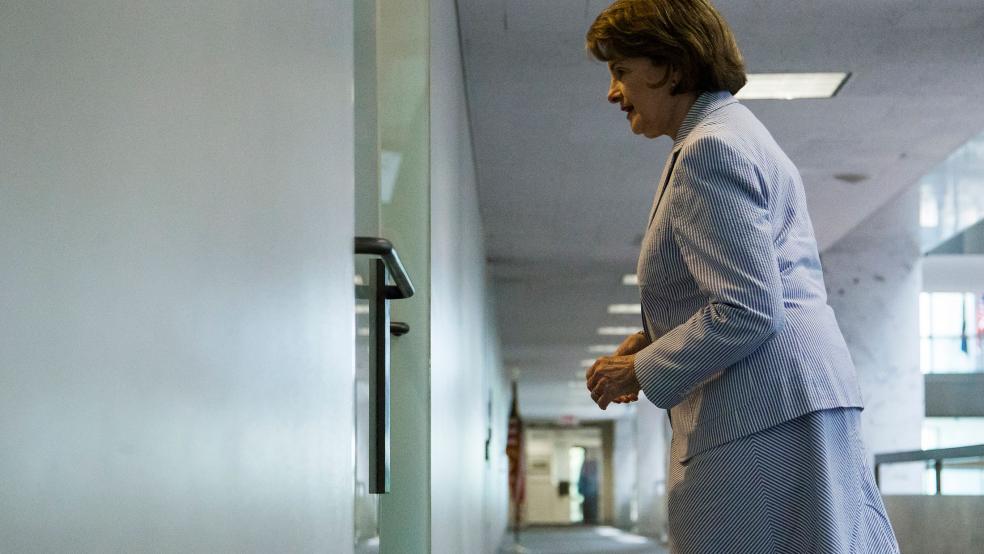A year and a half ago, the Senate Intelligence Committee completed a report on the Central Intelligence Agency’s use of torture as an interrogation tactic in the Bush administration’s post-9/11 war on terror. As soon as today, the White House is expected to provide the Senate Intelligence Committee its recommended redactions to the committee’s report.
This sets up an awkward negotiation, as the CIA was forced to admit yesterday that it had spied on Senate staffers as they researched that report.
Related: Why the CIA Fears the Internet of Things
The CIA Inspector General, according to information released Thursday, found that some of the agency’s employees “acted in a manner inconsistent with the common understanding reached” with the Senate Committee. The behavior in question apparently involved hacking into computers the agency had promised lawmakers would be accessible only to Senate staff.
The usual process, when a report like this is declassified, is that the full document is first delivered to the administration, which returns it with the redactions it believes are necessary to preserve national security. Typically, the congressional committee issuing the report will then make a counter-offer, and some sort of agreement will eventually be reached.
Those discussions may be a bit more acrimonious now.
Related: CIA Director Admits to Spying on Senate Staffers
When the allegations of CIA interference surfaced earlier this year, Senate Select intelligence Committee Chair Dianne Feinstein (D-CA) delivered a blistering speech on the Senate floor, castigating the CIA for interfering with the legislative branch’s legitimate oversight of the executive branch.
Feinstein was met with denials by the agency. CIA Director John Brennan said at the time, “Nothing could be further from the truth. I mean, we wouldn’t do that. I mean, that’s just beyond the scope of reason in terms of what we would do.”
He predicted the agency would eventually be vindicated. “When the facts come out on this, I think a lot of people who are claiming that there has been this tremendous sort of spying and monitoring and hacking will be proved wrong,” said Brennan.
The agency’s tone was significantly different Thursday. When the findings of the IG report were released, the agency acknowledged that Brennan had personally traveled to Capitol Hill to apologize to Feinstein and her Republican counterpart Saxby Chambliss (R-GA).
Related: How Obama Lost Friends in Europe and influence Globally
“I was briefed Tuesday by CIA Inspector General David Buckley on the results of an IG investigation,” Feinstein said in a statement Thursday. “The investigation confirmed what I said on the Senate floor in March – CIA personnel inappropriately searched Senate Intelligence Committee computers in violation of an agreement we had reached, and I believe in violation of the constitutional separation of powers.”
Sen. Ron Wyden (D-OR) called for an aggressive investigation into who in the CIA was responsible for the hacking.
“The CIA Inspector General has confirmed what senators have been saying all along: The CIA conducted an unauthorized search of Senate files, and attempted to have Senate staff prosecuted for doing their jobs,” Wyden said.
“What’s needed now is a public apology from Director Brennan to staff and the committee, a full accounting of how this occurred and a commitment there will be no further attempts to undermine congressional oversight of CIA activities.”
Top Reads from The Fiscal Times:





